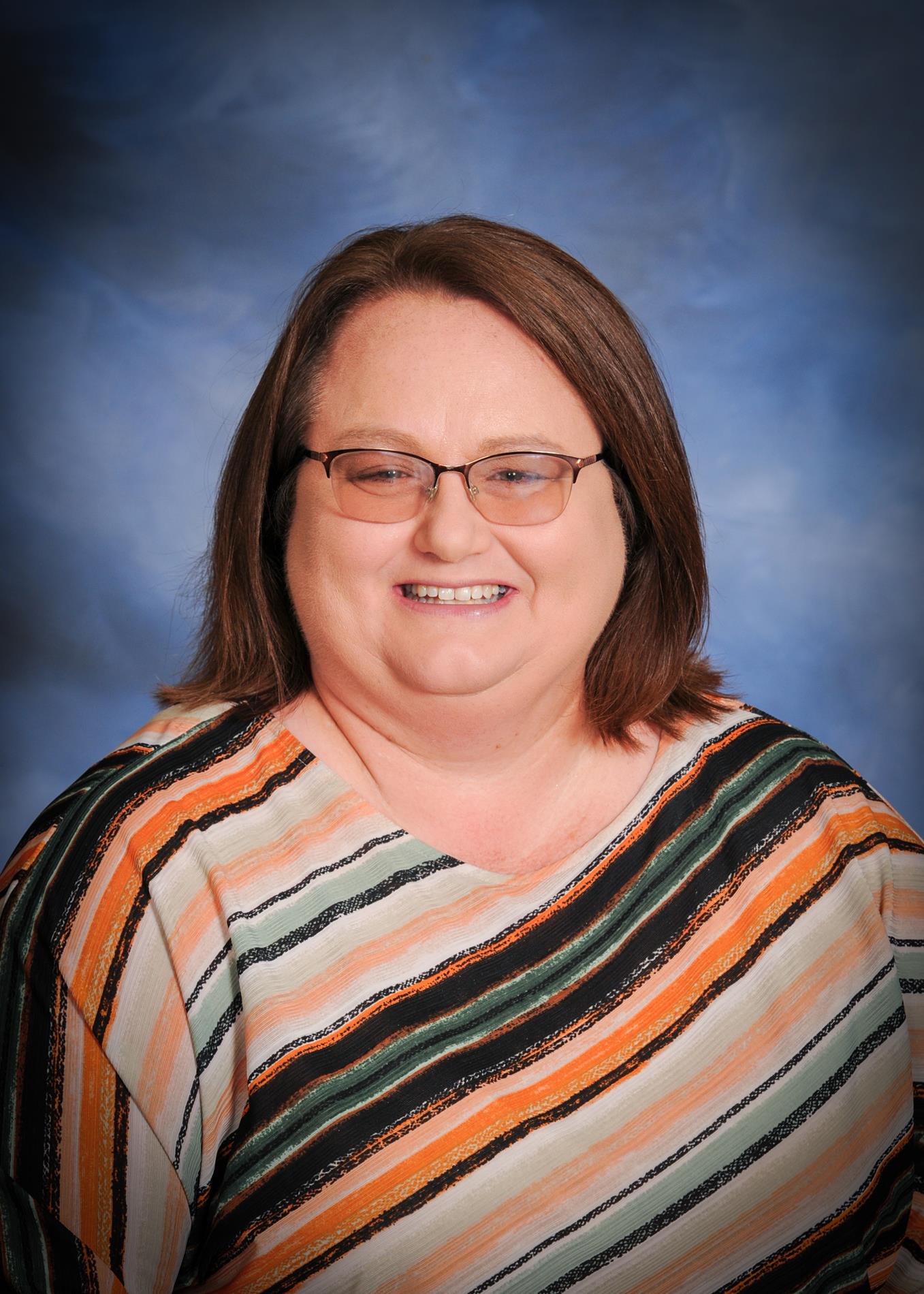Principal's Corner

Mrs. Deidre Helton
PERSONAL EDUCATIONAL PHILOSOPHY
I believe that the purpose of education is to bring about the physical, mental and social development of an individual. Education is a lifelong journey. I believe that we acquire information from every incident that you are exposed to, every experience you have and every person you meet. I can identify greatly with Aristotle and Plato in thinking that such learning happens throughout life – although with different emphasis at different ages.
Core Beliefs, Core Values, and Guiding Principles
The basics of education is to teach a person to read and write. The ability to read is essential for a student to progress in learning. John Calvin believed that the young needed to attend school to learn to read so that they could read the Bible. I agree with this thinking but not solely limited to reading the Bible. While I am a believer, and believe that reading the Bible daily has a profound effect on one’s life, students should read a wide variety of material. I believe that through reading and gathering information from one’s own interpretation is imperative to learning. I feel that the more books you read the more diverse information you gather and the more knowledge you acquire. My view of epistemology is that the knowledge you place in your mind today through reading has a profound effect on your life in the future.
The fundamentals of science and math are pillars in which the understanding of life is based. It was from the learning of these two subjects that we learned the Earth was round, that we have ten fingers and ten toes, and we have two eyes and one nose. Through this education, you learned about yourself and the world around you. One of the basic purposes of education is to make an individual aware. It is through this belief that I relate to Aristotle in his philosophy. It is the reasoning learned from math and science that one attains a true knowledge of the world around them.
Effective Teaching and Learning
I believe that every individual has the right and human obligation to learn. It is essential to gaining a better understanding of life and one’s purpose on this Earth. Education is the key to open many doors and to further increase one’s quality of life.
An effective teacher understands that teaching involves many components to ensure that the school runs smoothly and all students receive a quality education. The first component is planning. Teachers should be learners, constantly taking classes and attending professional development opportunities to learn the latest and best strategies for effective teaching. They should collaborate with other teachers to gain new ideas for teaching, planning grade-level instruction and combining subjects to enhance the learning experience. I am a huge proponent of Professional Learning Communities (PLC) among educators. The second component is instruction. I feel that many forms of instruction should be administered in the classroom to meet the needs of the wide diversity of students. Differentiated instruction is a crucial element to master for the educator. The use of technology in the classroom can greatly benefit this element and teachers should take every advantage to becoming quite adept in this area. Teachers are facilitators of learning, providing students with the information and tools they need to master a subject.
I believe that the interaction between the teacher and student is key in the educational process. To be able to connect with students and make them feel important is imperative in the educational process. Teachers are mentors to their students to guide them through life and be there when they need them. To be a stabilizing factor in a student’s life carries a lot of weight in the trusting aspect.
Teachers must be leaders in the classroom and in the school and earn the respect of students and set a positive example.
Students should be active participants in the classroom. They should participate in discussions, feel free to ask questions and be able to express their own ideas. They should be motivated to learn. This is tied in with the teacher’s role as well. Teachers should be able to motivate their students to want to learn. To ask probing questions that require the ability to think critically. I share this belief with Socrates. He believed in asking probing questions rather than giving students the answers. For students to acquire the knowledge and reach a conclusion themselves. I feel it is the teacher’s job to pull the knowledge out. I further believe that students should participate in such a way that they try and pull from a previous experience or knowledge to apply the new learning. Students also have the responsibility to monitor their study time, classroom behavior, and quality of work. Students should take pride in themselves and the work they generate. They should be respectful and recognize that the teacher is in control of the classroom and to help in every aspect to facilitate learning.
Community Relations
Community support is vital to the success of schools and individual students. A major aspect in which the community can help education is increasing student attendance. They can achieve this by motivating students through various programs sponsored by community members and scholarship awards based on attendance. Another way is providing physical facilities. Providing physical facilities such as buildings, teaching aids, and volunteers can be crucial in the school/community relationship. Financing is a major issue in most schools. Providing financial assistance or donations for educational purpose. Communities can also extend their support through libraries, museums, recreational centers, and churches. Both community and school are closely related for a larger mission and that is creating a learning society.
Classroom Management
I feel that educators need to provide effective instructional techniques to meet the needs of a wide diversity of students. The broad range of perspectives brought to school by culturally, economically, and ethnically diverse students offer a powerful incentive for everyone to learn more. Teachers need a greater repertoire of strategies conducive to teach the varied styles of learning in today’s classroom. I believe that a diverse classroom is the ideal platform in which to learn multiple viewpoints required by a global society. Students who have the ability to work collaboratively with their classmates of different circumstances are better prepared to be successful in today’s diverse world. Teachers must possess the techniques, knowledge, and skill to make their classrooms an effective teaching and learning environment.
Classroom management is a crucial element conducive to effective learning environments. I believe that effective classroom management depends on the teacher’s ability to establish clear and appropriate expectations of behavior, and exhibiting an assertive presence in the classroom. Students need to be aware of what is expected of them academically as well as behaviorally. Teachers must set rules and consequences on the very first day of class. If the students do not know what is expected of them, I feel that it can affect the learning expectation which in turn can decrease student achievement.
Teachers must be assertive in the implementation of their classroom management. This can be achieved by presenting an erect posture, facing the students, and being consistent with their discipline techniques. When disciplining a child, the teacher needs to keep a safe distance from the student so as not to be threatening and matching the facial expression appropriate to the situation. They should use their tone of voice that is stern but not demeaning and speak in a voice that is slightly above normal classroom speech. I believe that inappropriate behavior should not be ignored and corrected immediately. I also believe that the teacher needs to explain what the inappropriate behavior was, and give the student an opportunity to explain how he or she could have done differently. I’m also a firm believer in notifying the parent/guardian of the inappropriate behavior by a simple phone call by the end of the school day.
My Ideal School
My vision of the ideal school is one that provides children a safe place to learn and to play. I want the students to have a sense of stability and security. The school climate should be that of a family atmosphere where the faculty and staff share a vision and work towards the education and needs of every child. The faculty must care about the students and each other to provide the best, most positive experience in the lives of its students.
My philosophy of education most closely aligns with Progressivism and the theories of John Dewey. I believe that students thrive in an environment where they are allowed to experience and interact with the curriculum, and all students should have the opportunity to take part in their own learning. I also align with Essentialism, especially in younger students, that teaches the basics and builds the foundation for a quality education. So education should not only be a means to gain content knowledge, but also to learn how to live. I feel that learning is best achieved by relating content to real life experiences and providing hands on activities to the students. This provides a deeper meaning for the student and provides the “why” in learning. Learning should be active in that students test ideas through active experimentation.
Final Word
I believe that all children have the ability to learn and the right to a quality education. All students, regardless of ethnicity, gender, capabilities, or socioeconomic status should have the opportunity to learn from well informed, professional educators. Every child is different, but a teacher can provide an equal chance of success by having individual goals for their students’ capabilities.
I recognize a commitment to myself, my students, and my colleagues to be the best teacher, leader, and role model that I can be. My goal is to make a positive impact on the life of every individual that I come in contact with. To keep an open mind, effectively communicate, and to lead with ethical intentions.

